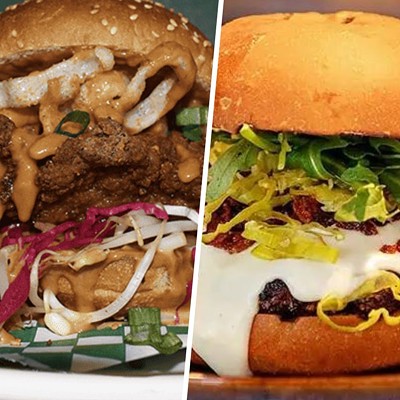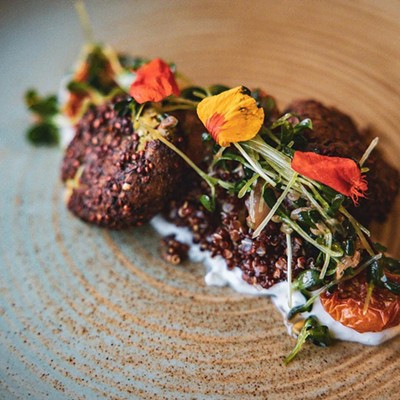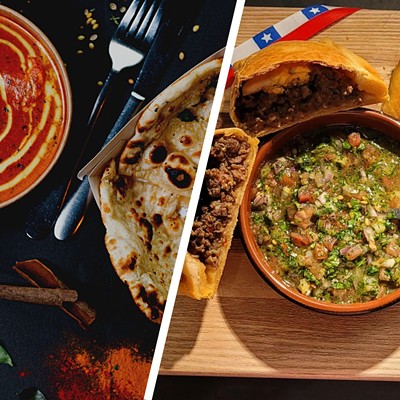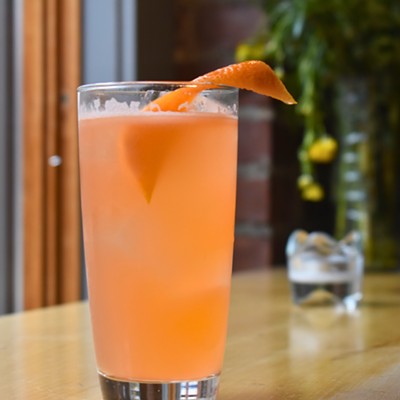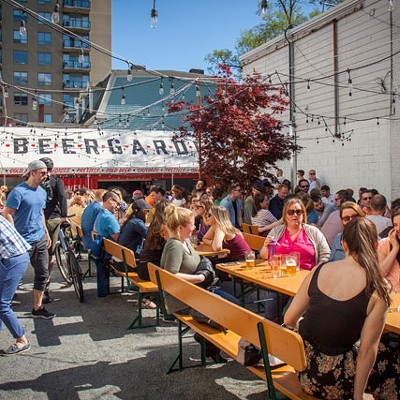The say that slow and steady wins the race. Over the next two weekends, Nova Scotia's top culinary minds hope to prove it.
First up is the Slow Food Spring Supper on May 4 at Christ Church in Dartmouth. Chefs Mark Gray, David Smart and Andrew Aitken are three of the nine chefs teaming up for the seven-course meal.
"I am a big believer that we should be eating locally and seasonally," says Smart, of Wolfville's Front and Central. "Anything that increases awareness to where our food comes from is a good thing in my mind. Events such as these provide the necessary exposure and opportunity to learn all about 'our' food."
"We need to use what is near and dear to our land, and give back to our own community and province," says Brooklyn Warehouse's Mark Gray, involved for the first time this year. "People need to understand that what we have in the Maritimes is amazing. Our agriculture, fishing and farming industries are some of the best in the world, and we need to let that light shine for everyone to see."
Wild Caraway Inn has quickly become a destination for Nova Scotians looking for an amazing local food experience. The small, seasonal restaurant can seem remote, tucked away in a small harbour by the Bay of Fundy, but this event happily brings Andrew Aitken's food a little closer to home.
"It's an exciting opportunity for me to showcase what our area has to offer in early spring, with the sorrel just poking its head out of the ground and the halibut just starting to run," he says. "And with only one fisherman still catching halibut out of our town I feel quite honoured to be able to share it.
"The beauty of such events, at least to me," he says, "is the subtle way it educates all those involved, chefs and diners, which is part in parcel of what the Slow Food Movement is aiming to achieve. Great produce, great chefs, great dinner---pretty simple, really."
While the dinner is simple, the politics behind slow food and the movement towards fair food and better food systems are not.
"I see the slow food agenda as the most comprehensive, inclusive and expansive of the food focused entities in existence," says Sheila Stevenson, a Slow Food Nova Scotia board member. "It is environmental, social, economic, political, historical, cultural, local and global in its scope all at the same time."
Stevenson is also on the organizing committee of the NS Food Gathering, which is taking place May 9-11 at Dalhousie University. She calls it a chance "to learn, to connect, and to attempt to get people to realize that the definition of food security has to include those other elements, like preservation of farm land and healthy soil, that are not necessarily thought of."
"Food security impacts everybody differently," says Satya Ramen, project coordinator of Activating Change Together for Community Food Security, and an organizing member of the Food Gathering. "For some it's their livelihood, for some it's not being able to put food on the table, for some it's about health or sustainability. It affects all of us because we all eat---it's a common thread and because it's a complex issue and there's not one strategic goal, it's diversity that will move it forward."
Ramen hopes to see a discussion that helps people connect with food security issues and goals surrounding access to food. "A lot of people identify 'buy local' as the food movement in Nova Scotia, but part of our goal is to self-reflect and to be able to see our selves as a food movement."


